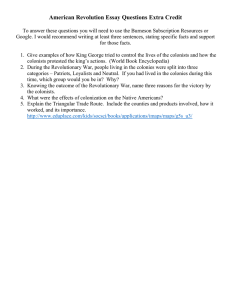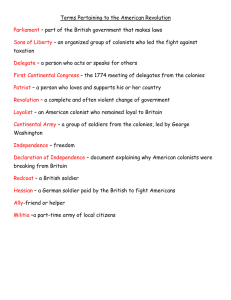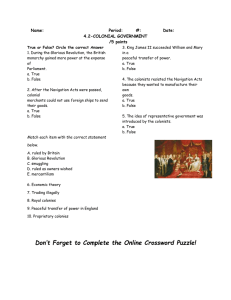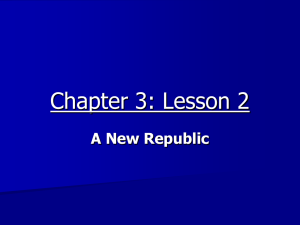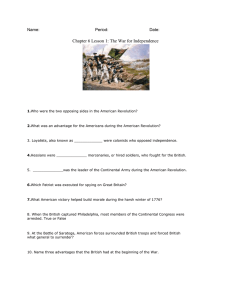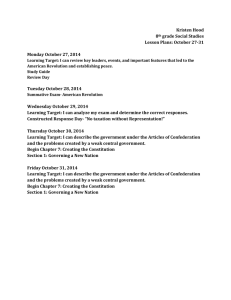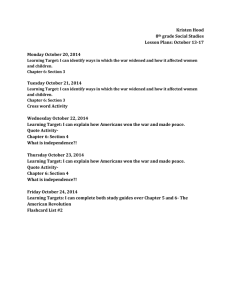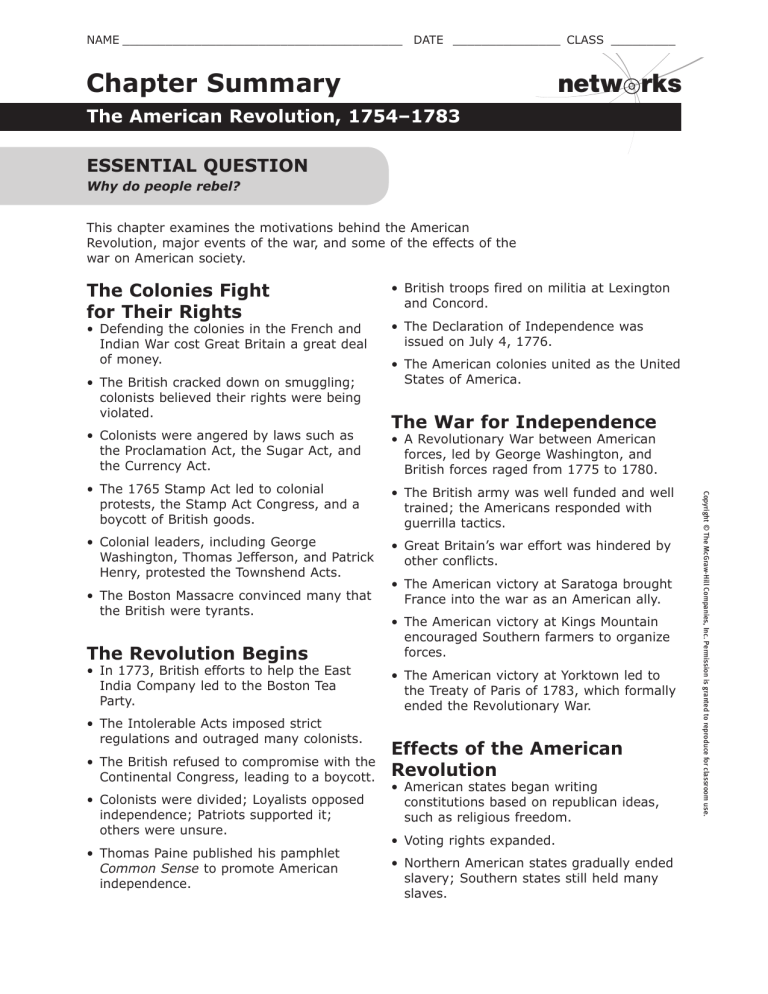
NAME _______________________________________ DATE _______________ CLASS _________ Chapter Summary netw rks The American Revolution, 1754–1783 ESSENTIAL QUESTION Why do people rebel? This chapter examines the motivations behind the American Revolution, major events of the war, and some of the effects of the war on American society. The Colonies Fight for Their Rights • Defending the colonies in the French and Indian War cost Great Britain a great deal of money. • The British cracked down on smuggling; colonists believed their rights were being violated. • Colonists were angered by laws such as the Proclamation Act, the Sugar Act, and the Currency Act. • British troops fired on militia at Lexington and Concord. • The Declaration of Independence was issued on July 4, 1776. • The American colonies united as the United States of America. The War for Independence • A Revolutionary War between American forces, led by George Washington, and British forces raged from 1775 to 1780. • The British army was well funded and well trained; the Americans responded with guerrilla tactics. • Colonial leaders, including George Washington, Thomas Jefferson, and Patrick Henry, protested the Townshend Acts. • Great Britain’s war effort was hindered by other conflicts. • The Boston Massacre convinced many that the British were tyrants. The Revolution Begins • In 1773, British efforts to help the East India Company led to the Boston Tea Party. • The Intolerable Acts imposed strict regulations and outraged many colonists. • The British refused to compromise with the Continental Congress, leading to a boycott. • Colonists were divided; Loyalists opposed independence; Patriots supported it; others were unsure. • Thomas Paine published his pamphlet Common Sense to promote American independence. • The American victory at Saratoga brought France into the war as an American ally. • The American victory at Kings Mountain encouraged Southern farmers to organize forces. • The American victory at Yorktown led to the Treaty of Paris of 1783, which formally ended the Revolutionary War. Effects of the American Revolution • American states began writing constitutions based on republican ideas, such as religious freedom. • Voting rights expanded. • Northern American states gradually ended slavery; Southern states still held many slaves. Copyright © The McGraw-Hill Companies, Inc. Permission is granted to reproduce for classroom use. • The 1765 Stamp Act led to colonial protests, the Stamp Act Congress, and a boycott of British goods. NAME _______________________________________ DATE _______________ CLASS _________ Chapter Summary Cont. netw rks The American Revolution, 1754–1783 • Education and opportunities for women began to increase. • Native Americans were not recognized for their contributions to American independence. • Loyalists fled north, leading to the creation of the new colonies of Upper and Lower Canada. • A new American culture emerged based on republican values. Copyright © The McGraw-Hill Companies, Inc. Permission is granted to reproduce for classroom use.
